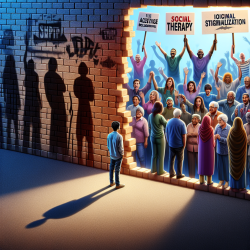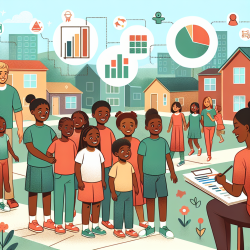Understanding Stigma and Belonging for People with IDD
Stigma remains a significant barrier to the acceptance and inclusion of individuals with Intellectual and Developmental Disabilities (IDD) across diverse cultures. Recent research, such as the study by Jansen-van Vuuren and Aldersey (2020), highlights the need for culturally sensitive approaches to reduce stigma and foster belonging for people with IDD.
Key Findings from Recent Research
The study identifies various forms of stigma, including public stigma, self-stigma, courtesy stigma, and affiliate stigma, each affecting individuals and their families differently. The research emphasizes the importance of understanding cultural contexts in designing interventions that promote acceptance and belonging.
Strategies for Practitioners
Practitioners can enhance their skills by implementing the following strategies based on the research findings:
- Individual-Level Interventions: Encourage self-advocacy and skill-building for individuals with IDD, focusing on practical skills such as money management and social skills.
- Family-Level Interventions: Provide education and support to families, emphasizing the importance of creating a supportive home environment and understanding cultural nuances.
- Societal-Level Interventions: Advocate for policy changes and public education campaigns to raise awareness and reduce stigma. Collaborate with community leaders to enhance acceptance and inclusion.
The Role of Culture in Stigma and Acceptance
Cultural values significantly influence how stigma is experienced and addressed. For instance, collectivist cultures may benefit from family-centered interventions, while individualistic cultures might focus on empowering individuals with IDD. Practitioners must be culturally aware and adapt their approaches accordingly.
Promoting Belonging
Belonging is a crucial component of community acceptance and overall well-being for individuals with IDD. Interventions should aim to create environments where individuals feel valued and included, focusing on building meaningful relationships and community engagement.
Encouraging Further Research
While progress has been made, there is still a need for further research to explore innovative approaches to reducing stigma and promoting belonging. Practitioners are encouraged to engage in research and collaborate with individuals with IDD to develop effective interventions.
To read the original research paper, please follow this link: Stigma, Acceptance and Belonging for People with IDD Across Cultures.










